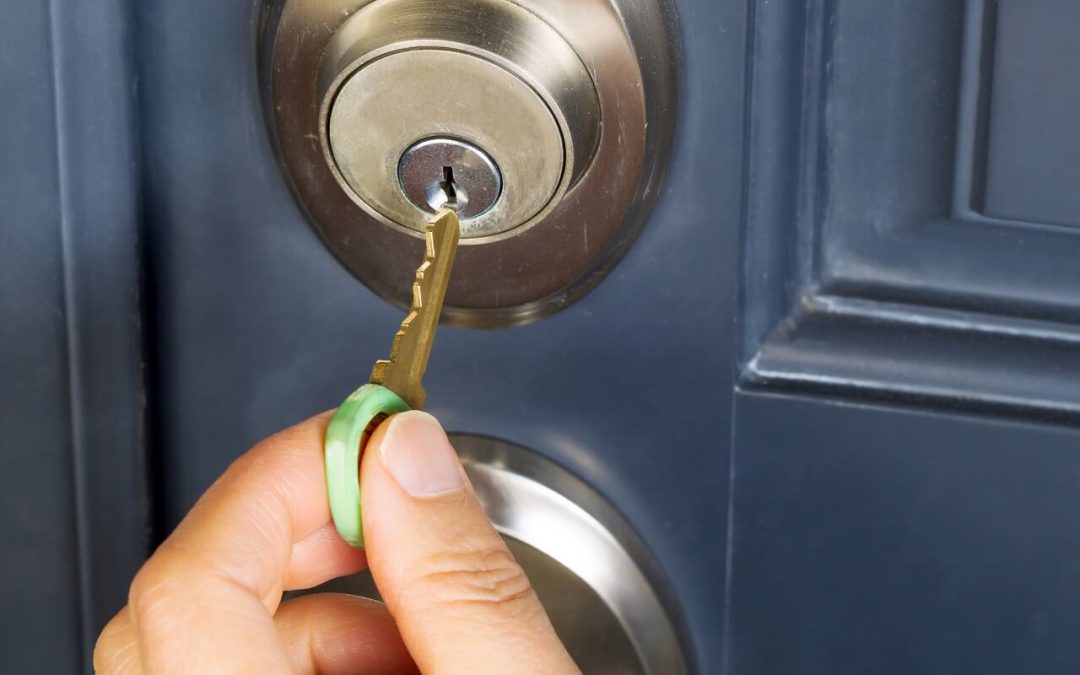
by mwonfor | Jul 18, 2023 | Community, Homeowners, Safe and Healthy Home
Safety and security are vital parts of homeownership. Taking the necessary steps to protect your property and family from threats is a worthwhile investment. Here are various measures to improve home security to keep yourself safe. From window and door locks to alarms and surveillance systems, plenty of ways to secure your property exist.
1. Improve Home Security with Upgraded Locks
All exterior doors should have strong locks and deadbolts to prevent intruders from gaining entry. Verify the windows also have locks, as these are vulnerable entry points during a burglary. Installing window locks is an easy way to secure your home; regular maintenance will keep them functioning properly.
2. Install a Home Security System
A home security system is one of the most effective ways to protect your property. Program your systems to alert you or the monitoring service if someone enters an unauthorized area of your home. Many modern security systems allow you to monitor your house remotely, giving you peace of mind wherever you are.
3. Improve the Outdoor Lighting
Good outdoor lighting is a great way to deter burglars. Install motion-sensing lights that switch on automatically when someone approaches your house, or set up timed lighting systems that come on at night and turn off in the morning. Automated home lighting gives an appearance of occupancy and makes it more challenging for criminals to break in unnoticed.
4. Start a Neighborhood Watch Program
Neighborhood watch programs are groups of community members who look out for each other and share information about suspicious activity in the area. This kind of awareness can go a long way toward preventing crime. If there isn’t a program in your neighborhood, start one to keep everyone in your area safe.
5. Install a Doorbell Camera
A doorbell camera is a great way to monitor people who approach the front door. Some models allow you to communicate with visitors without opening the door.
6. Get an Alarm Sign to Improve Home Security
Burglars are less likely to break into homes protected by a security system. Placing a sign in your yard with the name of your security company can be enough to deter some potential intruders.
Following these tips, you can create a secure environment for your family and protect your property. Home security is an ongoing process; staying informed and taking proactive steps will go a long way toward keeping your home safe.
American Home Inspection Services offers inspection services to customers in Southeastern Michigan. Contact us to request an appointment.
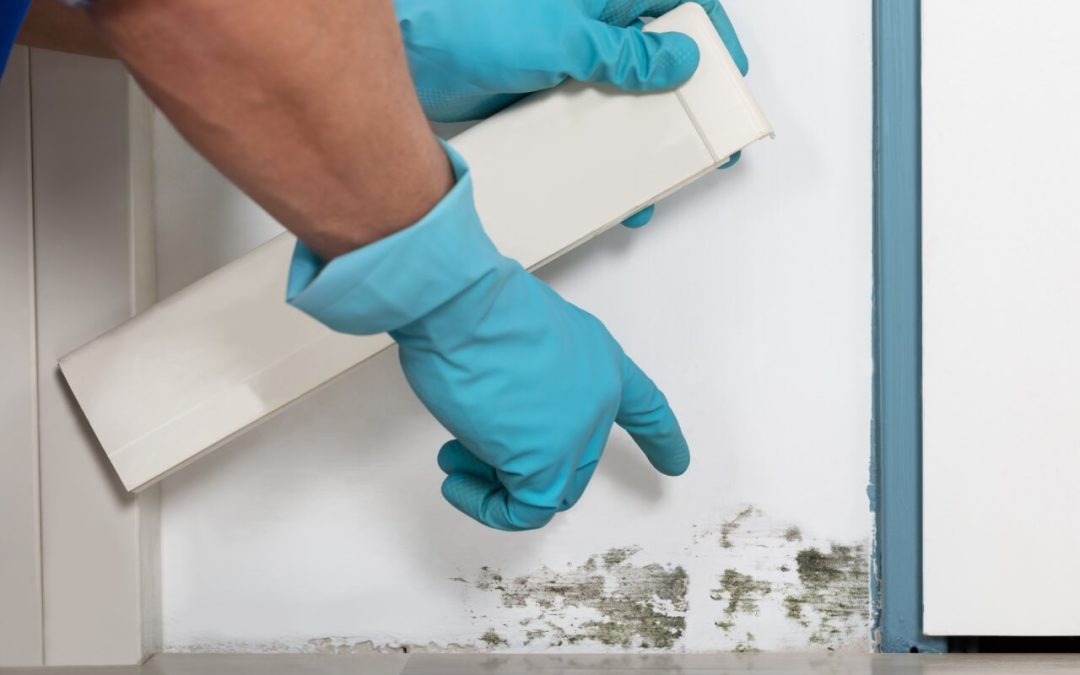
by mwonfor | Oct 21, 2022 | Community, Homeowners, Mold Inspection, Safe and Healthy Home
A damp basement can lead to structural problems and mold growth. If you have a wet basement, your property could be at risk, and mold development might lead to respiratory problems, skin irritation, and other health issues. The good news is that there are things you can do to prevent moisture in your basement. Here are six tips to keep the basement dry and mold-free.
1. Clean the Gutters
Gutters help keep a basement dry by diverting water from the foundation of the house. Clean the gutters regularly to prevent them from becoming clogged and overflowing. Water seeping into the basement can lead to mold growth and structural damage.
2. Grade the Land Around the Home
When it comes to keeping a basement dry, proper grading around the home is critical. When you ensure the ground slopes away from the foundation, water flows away from the house. Good grading will help prevent moisture from seeping into the basement and causing problems.
3. Apply Waterproof Sealant to Basement Walls
While a waterproof sealant can’t guarantee to keep your basement 100% dry, it can help to reduce the amount of water that seeps in.
To apply the waterproof sealant, clean the surface of the walls to remove dirt or debris that could prevent the sealant from adhering correctly. Next, apply the sealant according to the manufacturer’s instructions. Be sure to follow all safety precautions when using any type of chemicals.
Once the sealant is applied, you may notice a difference in the amount of water that seeps into your basement. However, the sealant may take some time to cure and reach its maximum effectiveness.
4. Seal Cracks or Gaps in the Foundation to Keep the Basement Dry
To keep the basement dry, seal foundation cracks to prevent water from seeping into the space and causing damage. There are several ways to seal foundation cracks; choose the best method for your home.
One way to seal foundation cracks is by using caulk. Choose a caulk that is specifically designed for use on concrete. Be sure to clean the crack or gap well before applying the caulk, as this will help it to adhere better. Apply the caulk in a smooth, even line and allow it to dry completely.
Another way to seal foundation cracks is by using epoxy resin. This type of resin is very strong and can provide a lasting seal. As with any product, follow the instructions on the label for the best results.
5. Use a Dehumidifier to Remove Moisture
Dehumidifiers are a great way to keep the basement dry and free of mold. Make sure there is an available electrical outlet to power the appliance. Set the humidity level to 60% or less and allow the machine to do its job. You’ll need to frequently empty the reservoir or attach a hose to the dehumidifier and allow it to drain outdoors.
6. Ventilate the Basement to Keep it Dry
If you have a basement, it is essential to ventilate the space to keep it dry. In addition to using a dehumidifier, here are a few tips.
- Use a fan to circulate the air in the basement. Good airflow promotes evaporation and reduces moisture accumulation.
- Open windows and doors when weather permits, allowing fresh air to circulate and helping keep the basement dry.
Following these tips, you can reduce moisture in your basement and keep it dry and mold-free year-round.
American Home Inspection Services provides inspections to homebuyers and sellers including mold inspections in Southeast Michigan. Contact us to request our services.
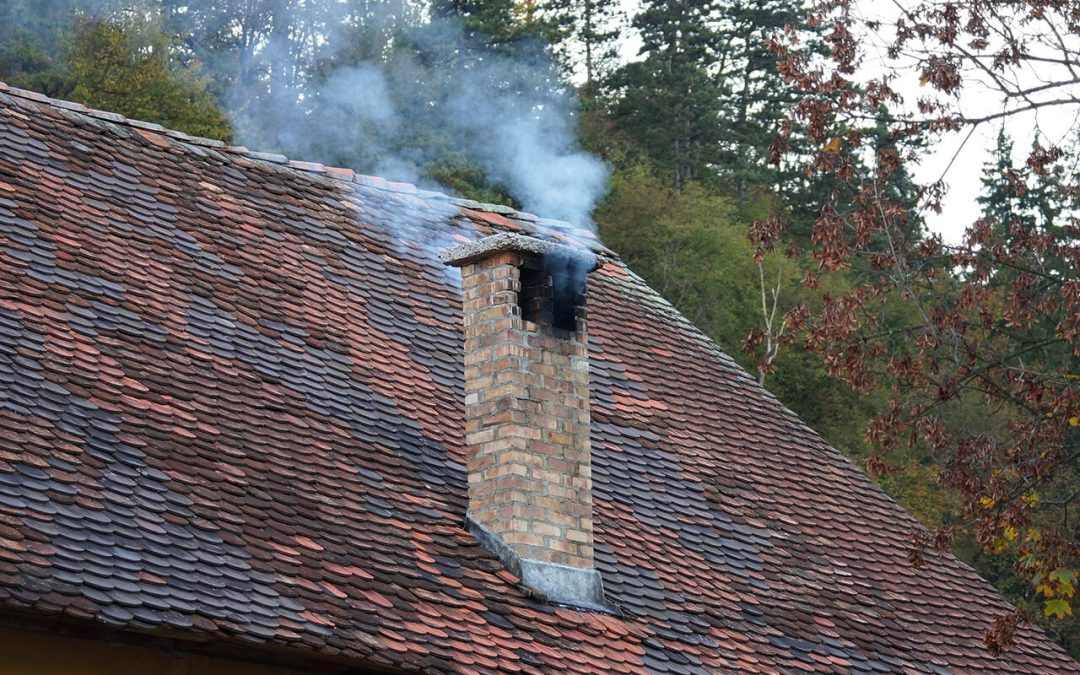
by mwonfor | Sep 22, 2022 | Community, Homeowners, Safe and Healthy Home
A house fire is a scary prospect for any homeowner. Fire can spread quickly throughout your home, causing extensive property damage, injury, or even death. Luckily, with proper chimney maintenance, you can reduce the risk of fire in your home. Below are four strategies you can implement to prevent chimney fires.
Minimize the Build-up of Creosote to Prevent Chimney Fires
Creosote is undoubtedly one of the leading causes of chimney fires. This highly flammable substance is a by-product of burning in the fireplace. Smoke condenses as it travels up the chimney. If the temperature within the flue is high and the creosote build-up is thick enough, creosote could ignite.
To prevent chimney fires caused by creosote build-up, use only seasoned wood stored in a dry place for at least six months. Before burning the firewood, test the moisture content using a moisture meter which you can purchase online or at hardware stores. Don’t burn freshly cut wood because it produces more smoke and creosote. Keep the damper open when using the fireplace to allow adequate airflow.
If your chimney is not insulated, hire a professional to insulate it. A well-insulated liner prevents the temperatures in the flue from getting too cold – an environment that leads to creosote formation when the smoke condenses quickly.
Schedule a Professional Chimney Inspection
Many defects that lead to chimney fires, like a damaged flue liner, aren’t usually visible to the naked eye. To promote safety, have a professional inspect and clean the chimney at least once per year.
An expert will check the chimney and notify you of any signs of damage. You’ll be able to schedule necessary repairs before the issue becomes more severe.
Clean Your Chimney
Before building the first fire of the season, ensure the chimney is clean. You’ll reduce the risk of fire by removing flammable materials like leaves, pine needles, animal nests, and creosote from the flue. You can clean your chimney yourself using a chimney brush and a ladder. However, it’s always preferable to let a professional handle this task. They have the tools necessary to eliminate soot, creosote, and other debris that has accumulated in your chimney.
Check the Cap to Prevent Chimney Fires
Another great way to prevent chimney fires is by making sure that you have a functioning cap. A chimney cap helps to keep debris, pests, and rainwater out of your chimney. It also helps to prevent backdrafts, where smoke from a fire re-enters the home as the wind blows down the chimney. If your chimney cap is loose, missing, or damaged, replace it before using the fireplace.
Fireplaces are a convenient source of heat during the cold months and can help you save on energy bills, but they can be dangerous if you don’t take proper precautions. Use these prevention tips to protect your loved ones from chimney fires.
American Home Inspection Services offers inspections to homebuyers and sellers in Southeast Michigan. Contact us to request our services.
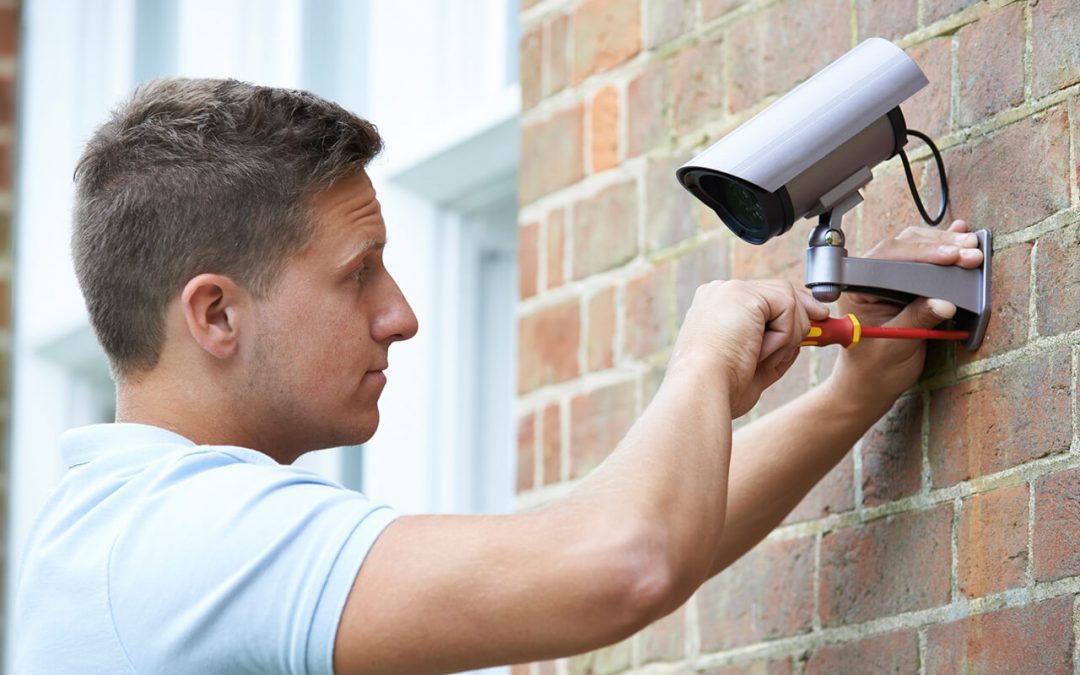
by mwonfor | Apr 29, 2022 | Community, Homeowners, Safe and Healthy Home
Homeowners are surprised to learn that intruders often enter through the front door. Protecting a home is just as important as maintaining it. With better security options, you can protect your home from break-ins. Here are a few tips to improve front door security.
Improve Front Door Security
One of the most effective ways to strengthen an entry against break-ins is to reinforce the door frame and install a deadbolt that reaches further into the frame than a standard lock. To further boost security, install a smart lock that sends alerts when the door opens and lets you lock your door remotely.
Security hinges are a simple and efficient upgrade to your front door security for those with outswing doors. An intruder cannot open the hinges from outside without proper tools.
Renovate your entrance by replacing the door with an enhanced solid core version. A solid core door adds weight and extra strength. A stable door prevents intrusion and is excellent for safeguarding against the elements.
Non-Invasive Security Options
If you’re looking for a less permanent solution, defend your home with a horizontal security bar. Unlike a traditional barricade, drilling holes into the wall is unnecessary. A security bar fits any standard door opening and is not complicated to install. These blockades are handy for rental homes and apartments where modifications might cost you your security deposit.
A video doorbell is a fantastic way to monitor your front door. They are easy to install and use. Video doorbells are available as a single unit or a system that allows you to monitor multiple locations. This smart technology will enable you to monitor your home’s entrances from anywhere you have access to a smartphone.
Motion-sensing lights detect movement at the front door. These lights automatically turn on and can deter would-be burglars. Because many break-ins occur after dark, motion-sensing lights provide peace of mind while you’re asleep or away.
Regardless of what components you use to secure your home, options exist for your specific needs. There are many possibilities to protect your home, from deadbolts and motion lights to new hinges and smart security.
American Home Inspection Services provides inspections to customers in Southeast Michigan. Contact us to schedule our services.

by mwonfor | Dec 9, 2021 | Community, Homeowners, Safe and Healthy Home, Seasonal
The holidays involve decorating, entertaining guests, and cooking delicious meals. While these activities help set a festive mood, they also pose hidden risks. Here are a few tips for safety during the holidays.
Lighting Safety During the Holidays
Conduct a thorough inspection of your lights before hanging them and replace any light strands with damaged cords or bulbs. When changing bulbs, use bulbs with the correct wattage to avoid an electrical problem.
Once you have confirmed the lighting is in good condition, be careful to not overload outlets or extension cords when plugging in lights. Keep children and pets away from light strands to avoid accidents. Finally, when you leave home or go to bed, switch off the holiday lights to help prevent an electrical fire.
Holiday Tree Safety Tips
A freshly cut tree is less susceptible to catching fire. Be sure to water the holiday tree and keep it away from open flames. Place the tree on a stable surface to prevent it from tipping over and causing injury. If you opt to purchase an artificial tree rather than a freshly cut one, make sure it’s labeled as “fire-resistant.”
Cooking Safety During the Holidays
Unattended cooking is a common cause of fires in the United States, and the winter holidays are the peak season for house fires. Prevent a fire by closely monitoring your oven and stove and never leaving the area when food is cooking. Clean spills right away to avoid slips and falls in the kitchen.
Fireplace Safety Tips
Gathering around a fireplace is an excellent way to keep warm and cozy. Make sure the flue is open before starting the fire. Use seasoned wood as fuel. Don’t burn wrapping paper or cardboard boxes in the fireplace. These materials can burn out of control and emit toxic fumes that are harmful to your health. Keep flammable objects like curtains, furniture, and rugs several feet from the fireplace.
Outdoor Safety Tips
Safety during the holidays isn’t limited to inside the house. Take safety measures outdoors, too. Keep the walkways and front porch safe and easy to navigate by shoveling snow and using ice-melt. Doing so will reduce the risk of injuries from falls.
Tips for Home Security
While you’re busy enjoying the holiday, burglars may be watching your home. Deter burglars by keeping curtains closed and bringing packages inside promptly. Use motion-sensing lighting to illuminate the yard after dark.
When you’re away for the holidays, ask a trusted neighbor to monitor your house for suspicious activity. Put the indoor lights on a timer to create the appearance that someone is home. Don’t post announcements online that you’ll be out-of-town. You compromise your home’s safety when you broadcast that it’s unoccupied.
The holidays are a time to relax and enjoy yourself, but it’s important to stay safe and well. Follow these tips for safety during the holidays.
American Home Inspection Services offers home inspections in southeast Michigan. Contact us to schedule our services.
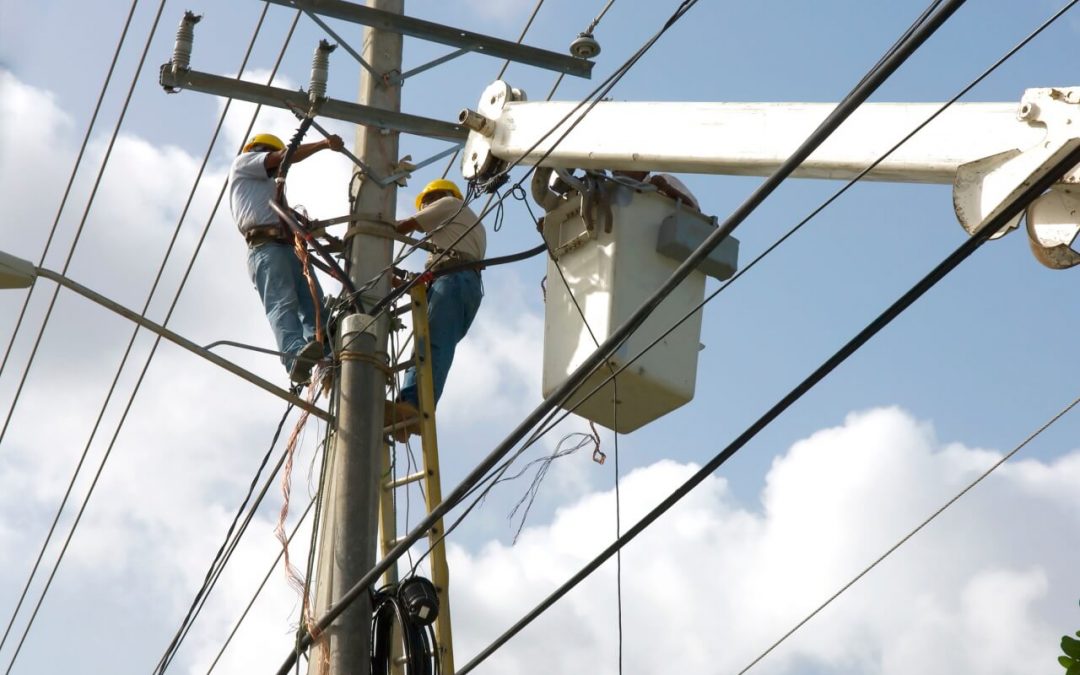
by mwonfor | Nov 11, 2021 | Community, Home Maintenance, Safe and Healthy Home
Every homeowner should be prepared for a power outage. While most outages are usually resolved in a short time, some last hours or even days. In the event of a major storm or accident, power to your home may be interrupted for quite some time. Here are a few tips to help you prepare for a power outage.
Six Things to Do to Prepare for a Power Outage
Assemble an Emergency Kit
If you lose electricity, the last thing you want is to fumble around searching for supplies. Assemble a power outage emergency kit and store it in an easy-to-access location. Some of the items to include are listed below. Inspect your kit frequently and update it as needed.
- Flashlights (one for each person in your household)
- First aid kit
- Necessary medications
- Batteries
- Whistle (to call for help in case of an emergency)
- Battery-powered radio
- Cell phone chargers
Store Plenty of Water to Prepare for a Power Outage
While water shortages are uncommon, they can happen if the power goes out for an extended period over a widespread area. On average, you’ll need one gallon of water per person per day. As a rule of thumb, store enough drinking water to last at least 72 hours. You’ll also want to put aside some water for cleaning and personal hygiene.
Stock Up on Non-Perishable Food
When there’s a prolonged power outage, shoppers may empty store shelves quickly. When you’re prepared, you won’t be stressed about finding essential supplies. Stock your pantry with non-perishable foods. Some excellent products to stow away include:
- Crackers
- Nuts
- Powdered milk
- Canned fish
- Cereal
- Granola bars
- Dried fruit
- Canned soups and vegetables
- Instant coffee and tea
When shopping for non-perishable foods, check their expiration dates. You will be storing them for several months, so it’s best if they’re far from expiring. If you purchase canned goods, make sure to include a can opener in your emergency kit.
Plan for Alternative Lighting
Good lighting is essential for safety and comfort. Be ready for a power outage by keeping alternate light sources on hand. You can purchase items like solar lanterns, LED flashlights, and candles. If you opt for the latter, keep matches or lighters nearby. To stay safe, don’t forget to extinguish candles before going to bed or leaving the house.
Purchase a Generator to Prepare for a Power Outage
A backup power source is an excellent way to prepare for a power outage. Purchase a small indoor generator to power items like your cell phone, computer, tablet, or a few lamps. These are lightweight, easy to carry around, and relatively quiet. However, these must be charged overnight before use and they aren’t very powerful.
On the other hand, gas-powered generators don’t have these drawbacks. They use gasoline or propane and can power many of the appliances in your home. However, this type of generator is bulkier and noisier and must be used outdoors.
Plan to Stay Occupied
Power outages can feel like an eternity and may increase the anxiety of some of your family members. Reduce stress by engaging in fun activities. Along with emergency supplies, be prepared with board games, puzzles, books, and magazines to keep everyone occupied. Activities help reduce anxiety and make the time pass more quickly.
Whether you live in a region prone to power outages or not, it’s essential to be prepared. Plan for a power outage by following the tips above to make the blackout more bearable.
American Home Inspection Services provides inspections to customers in Southeastern Michigan. Contact us to request our services.






